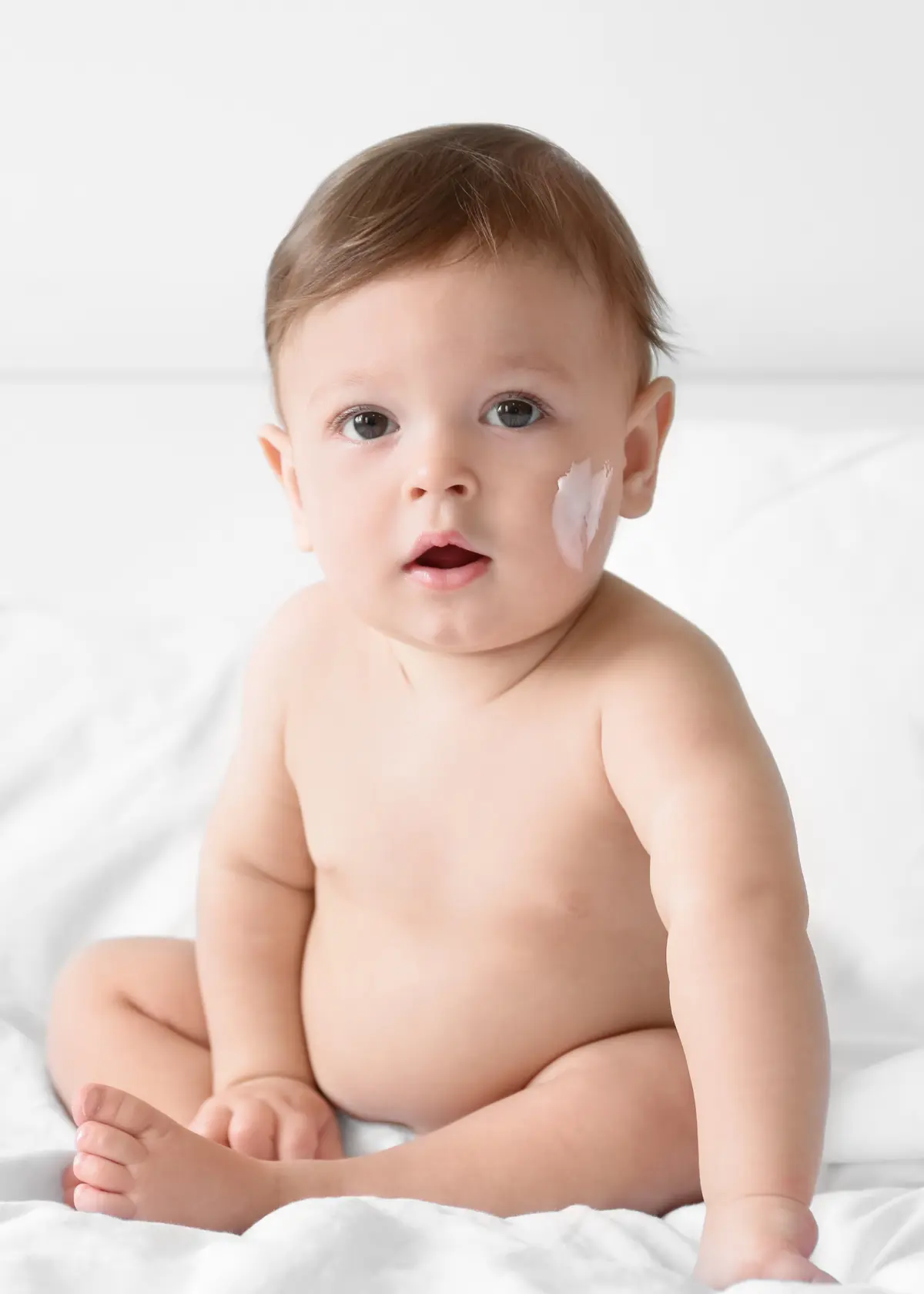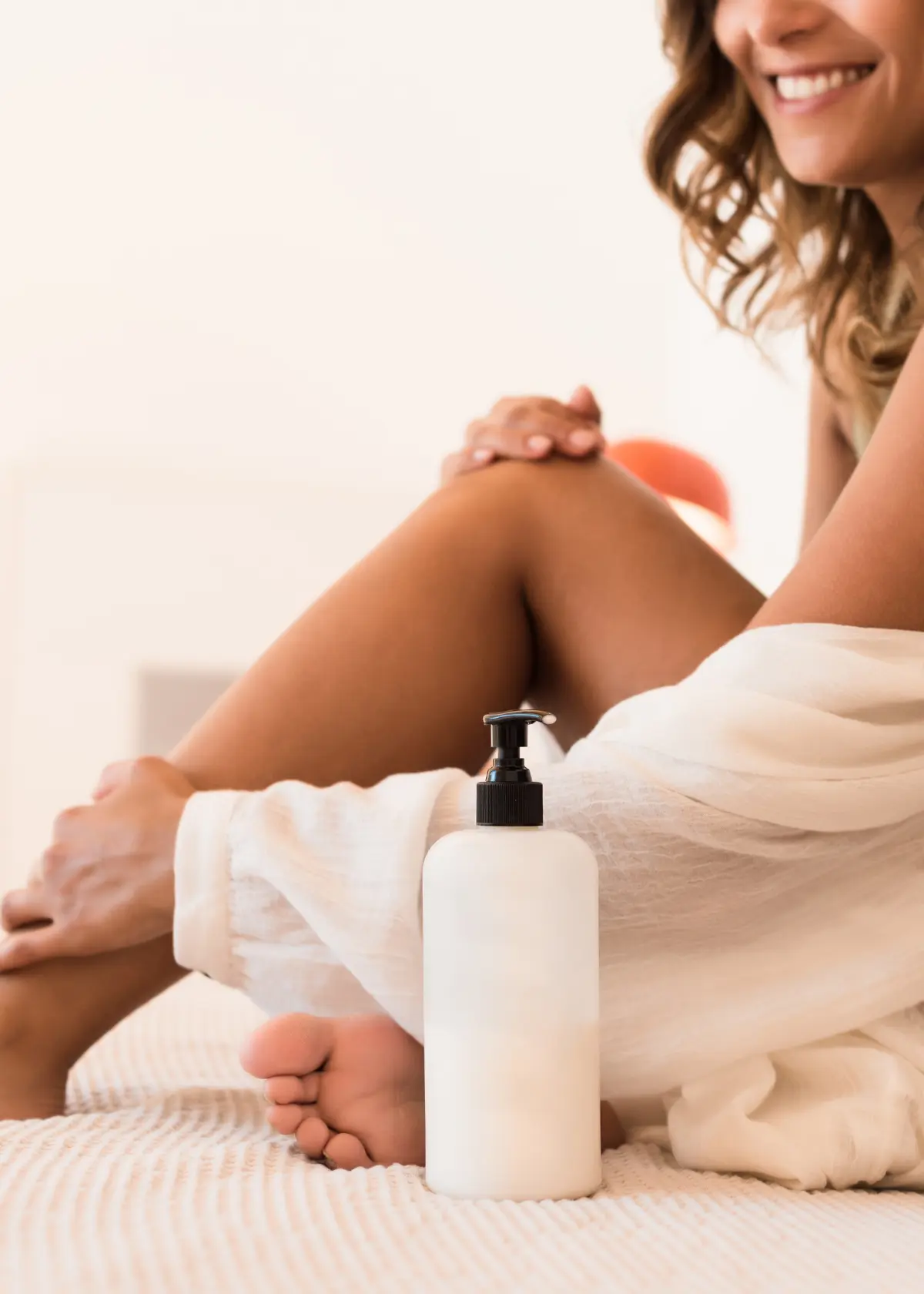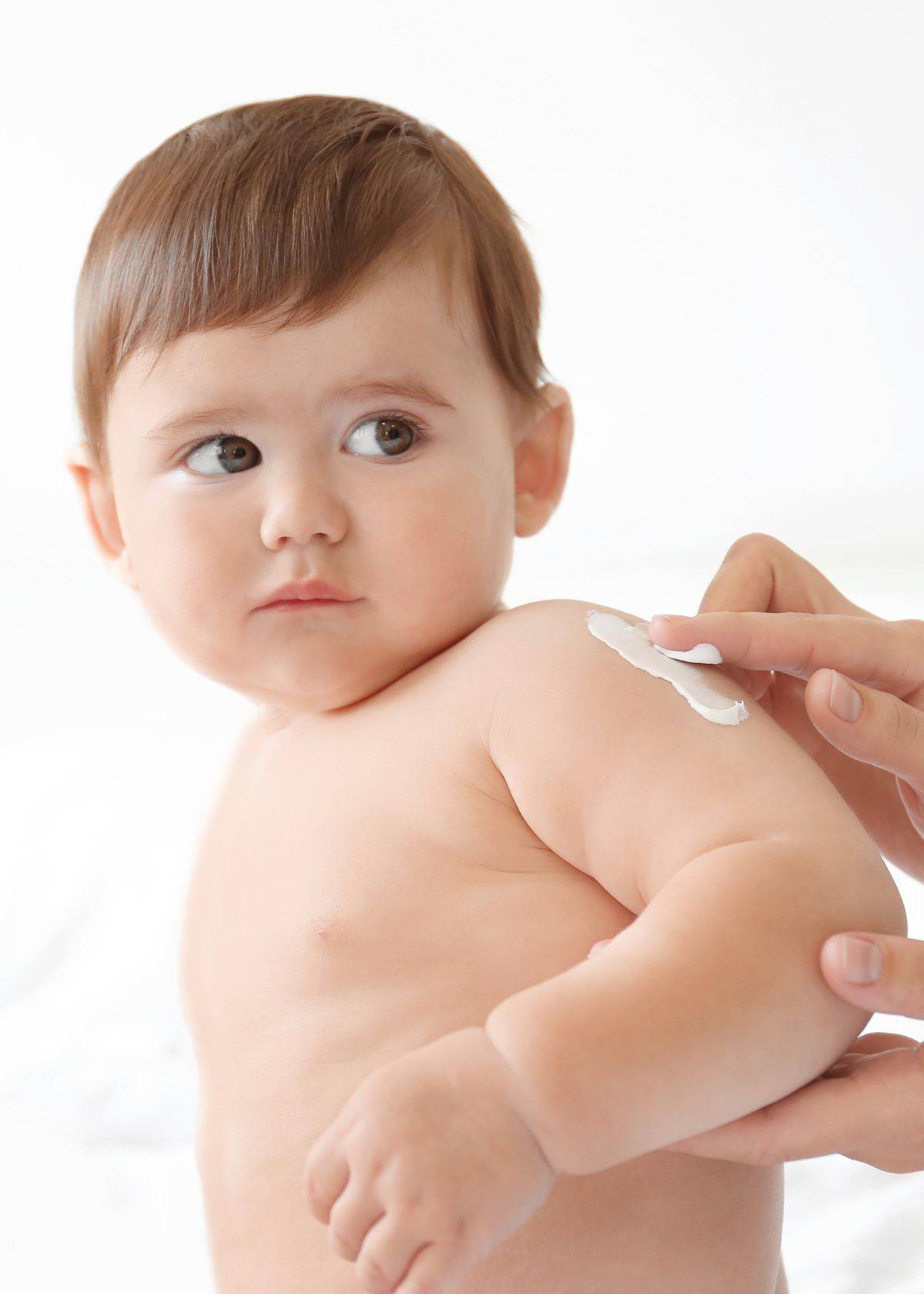Summer has rolled around, and like many of you, we cherish those long sunlit days spent outdoors with our little ones. However, we're all too familiar with the unwelcome guests who seem to thrive in this warmer weather - mosquitoes.
These irritating insects aren't just a nuisance; they pose genuine health concerns for our babies through bites that could lead to serious allergies or diseases.
Like any concerned parent, we've scoured resources far and wide for a solution that's not only effective but also gentle on the tender skin of our children.
Our journey led us to uncover a list of stellar products and natural ingredients designed to ward off these pesky critters without compromising your baby’s delicate skin health.
This article is more than just a guide; it's packed with practical advice on selecting the right lotion, and how to apply it safely, and explores natural alternatives for those who prefer going chemical-free.
So sit back – because yes, finding peace from pests while protecting your precious ones is entirely possible. Let’s dive in!
Key Takeaways
- Choose baby lotions for mosquito protection with active ingredients like DEET or Picaridin but avoid those with fragrances and dyes to protect your baby’s sensitive skin.
- Natural ingredients such as citronella, lemon eucalyptus, lavender, and neem oil are effective in repelling mosquitoes and offer a safer alternative to chemical-based repellents.
- When applying mosquito repellent lotions on babies, it's important to avoid their hands, mouth area, eyes, and any cuts. Ensure you apply the lotion in well-ventilated areas and reapply regularly for continuous protection.
- Opting for lotions specifically formulated for babies ensures they are free of harsh chemicals and safe for delicate skin while providing effective protection against mosquito bites.
How to Choose the Right Lotion for Mosquito Protection
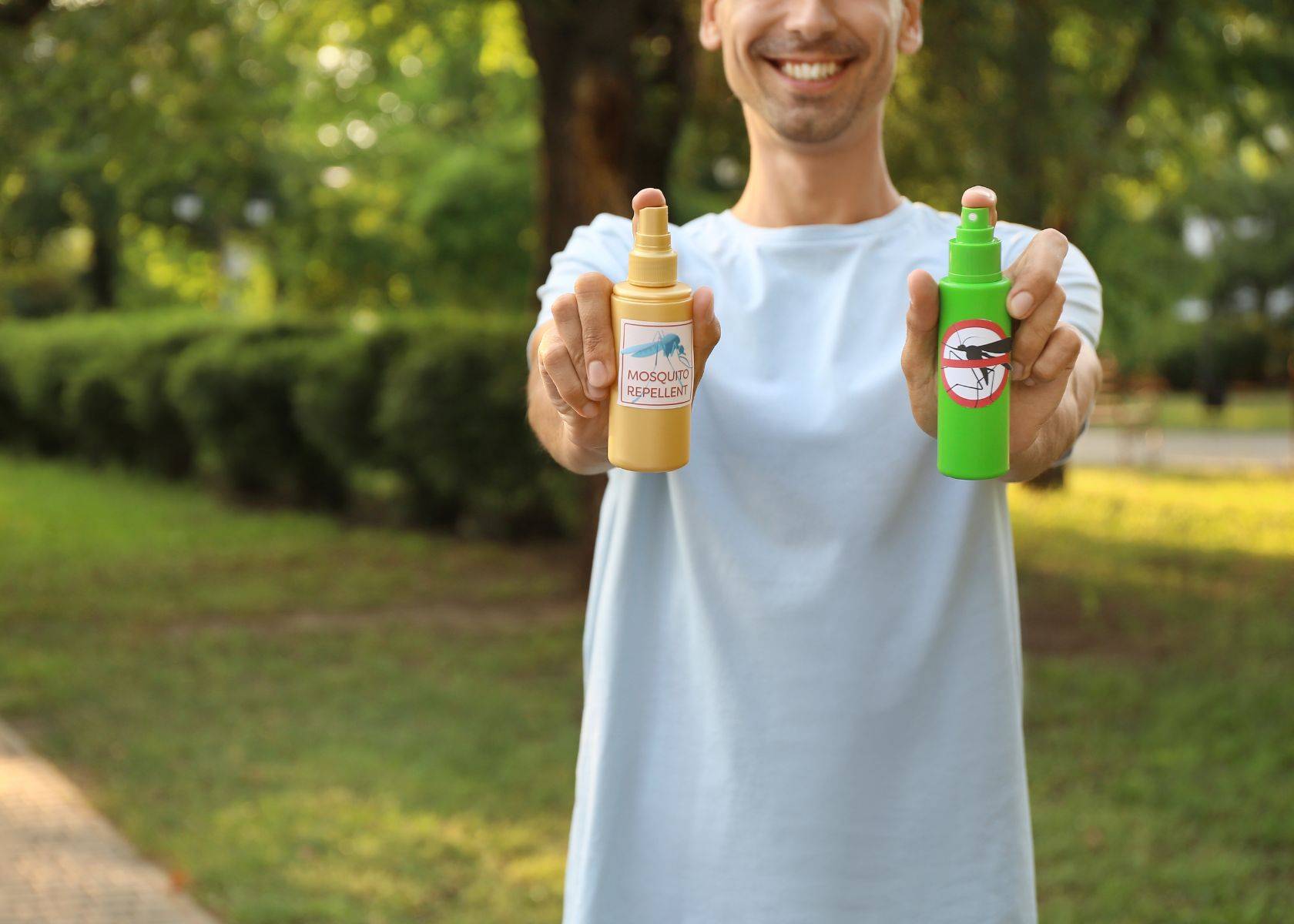
When choosing a lotion for mosquito protection, look for active ingredients like DEET or Picaridin. Avoid lotions with fragrances and dyes, and consider baby-safe options to protect your little one from mosquitoes.
Look for DEET or Picaridin as active ingredients
In choosing the best baby lotion for mosquito protection, we prioritize lotions with DEET or Picaridin as active ingredients. These substances are known for their effectiveness in keeping mosquitoes at bay.
They work by acting as strong repellents that confuse mosquitoes and prevent them from landing on skin treated with these compounds.
We always ensure that any lotion we select for mosquito protection has undergone dermatological testing and is deemed safe for babies.
Avoid lotions with fragrances and dyes
When choosing a lotion for mosquito protection, it's important to avoid products with fragrances and dyes. These additives can irritate a baby's sensitive skin and may not be effective at repelling mosquitoes.
Opting for lotions without these extras ensures that your baby's skin is protected from potential irritation, while still benefiting from the repellent properties of the product.
In our search for safe and effective baby lotions for mosquito protection, we found that many parents prefer options free from fragrances and dyes, prioritizing their little one's delicate skin.
Consider baby-safe options
When selecting a baby lotion for mosquito protection, opt for products with natural and gentle ingredients such as citronella, lemon eucalyptus, or neem oil. Look for lotions specifically formulated for babies to ensure they are free of harsh chemicals and safe for delicate skin.
To protect your baby from mosquitoes without exposing them to potentially harmful chemicals, choose lotions with organic and nontoxic ingredients. Look for options that have been dermatologically tested to ensure they are safe for use on infants and toddlers.
Natural Ingredients for Mosquito Repellent Lotion
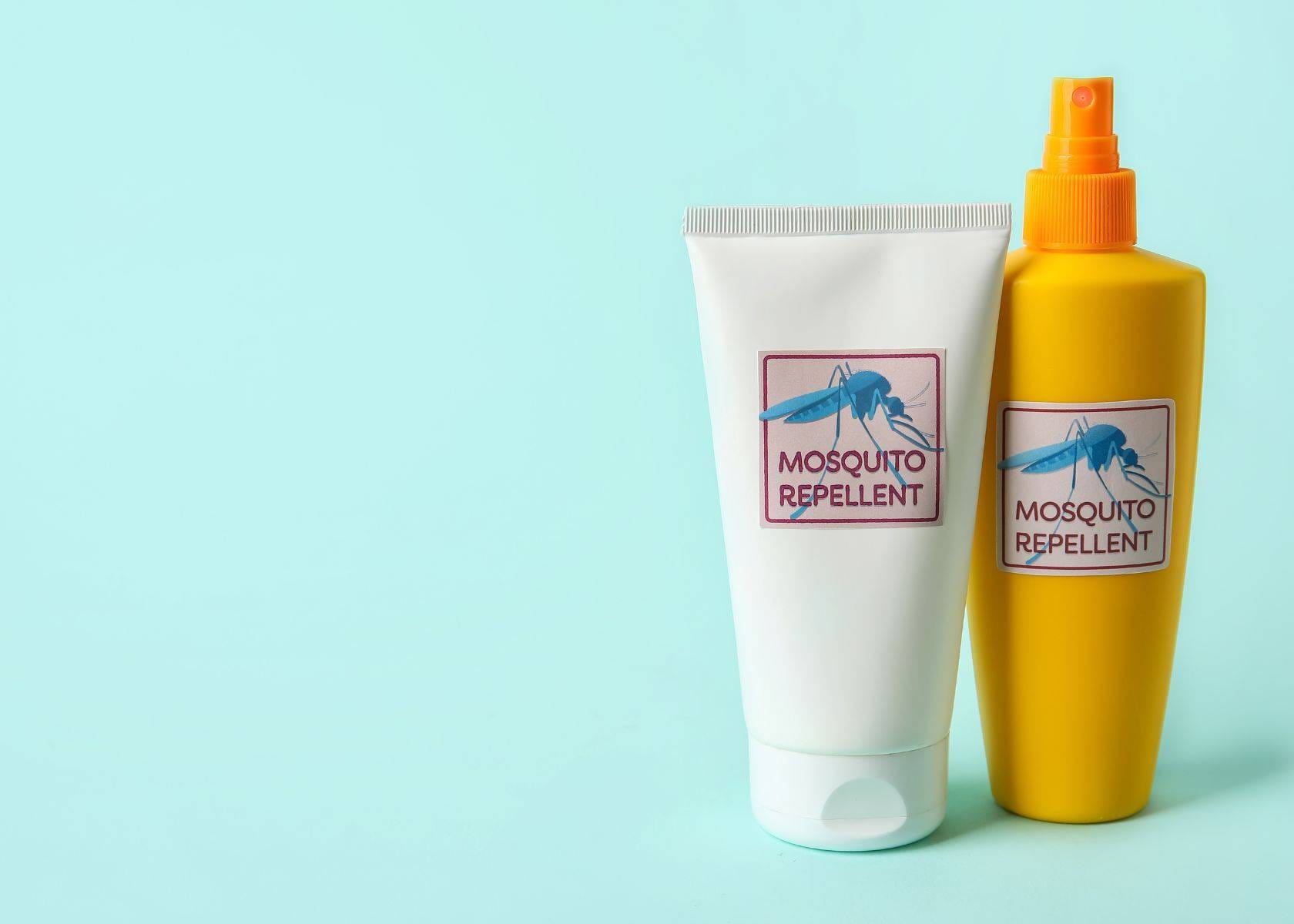
Citronella, lemon eucalyptus, lavender, aloe barbadensis leaf juice and neem oil are effective natural ingredients for mosquito repellent lotion. These ingredients provide a safer alternative to chemical-based repellents for protecting your baby from mosquitoes.
Citronella
Citronella is a well-known natural ingredient for mosquito repellent lotions and sprays. Derived from the leaves and stems of lemongrass, citronella oil is popular for its strong scent that masks the body odor, making it difficult for mosquitoes to locate their target.
This essential oil has been proven effective in repelling mosquitoes and other biting insects due to its powerful scent, which acts as a deterrent.
Lemon Eucalyptus
Lemon Eucalyptus oil is a natural ingredient known for its mosquito-repelling properties, making it an excellent choice for baby lotion designed to protect against insects. This essential oil contains citronellal and citronellol, compounds that are effective at keeping mosquitoes at bay.
Lemon Eucalyptus has been widely recognized as an efficient insect repellent by the Center for Disease Control (CDC) and is recommended as an active ingredient in mosquito lotions.
Lavender
Lavender, a fragrant and soothing herb, is known for its natural mosquito-repelling properties. The essential oil derived from lavender contains compounds that act as a deterrent to mosquitoes. This makes it an effective and gentle ingredient in baby lotions meant for bug protection.
Many parents prefer products containing lavender oil due to its calming scent and ability to ward off insects without the use of harsh chemicals.
Neem oil
Neem oil, derived from the seeds of neem trees, is a natural ingredient known for its insect-repelling properties. It contains compounds that act as effective repellents against mosquitoes, making it a popular choice for baby lotions designed to protect against insect bites.
Neem oil offers a gentle yet powerful alternative to chemical-based repellents while providing peace of mind to parents seeking safe solutions for protecting their little ones from mosquitoes.
Tips for Applying Mosquito Repellent Lotion on Babies
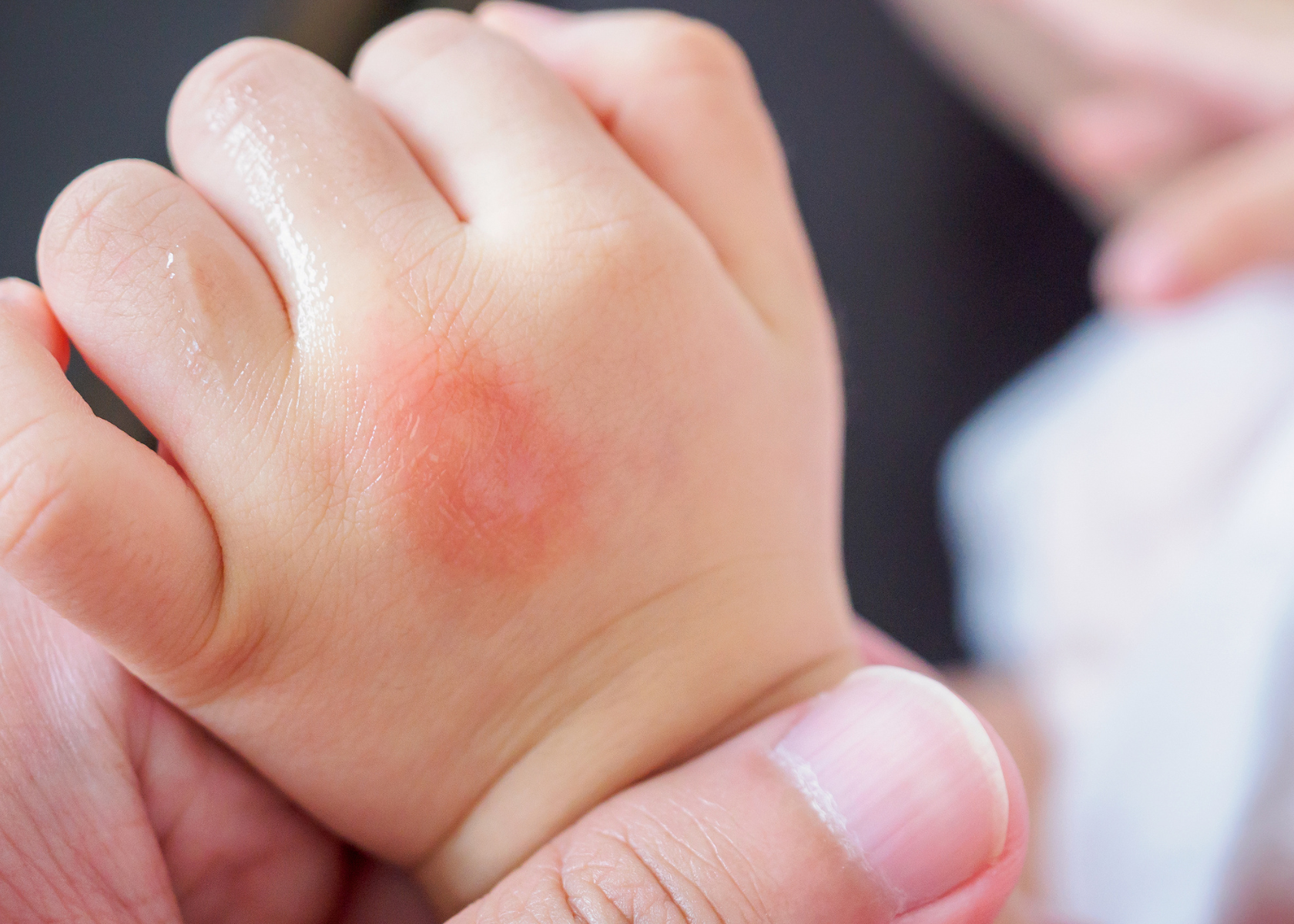
When applying mosquito repellent lotion on babies, remember to avoid the hands and mouth area. Ensure that you reapply the lotion regularly and use it in well-ventilated areas.
Avoid applying on hands and near the mouth
When applying mosquito repellent lotion to babies, it is crucial to avoid putting the product on their hands and around their mouths. This precaution helps prevent accidental ingestion or contact with sensitive areas.
Furthermore, keeping the application away from hands and mouth reduces the risk of children rubbing their eyes or inadvertently transferring the lotion into their mouths.
Parents should pay attention to these key points when using insect repellent lotions on babies for outdoor activities, providing a safe and effective barrier against mosquito bites.
Use in well-ventilated areas
Apply baby lotion for mosquito protection in well-ventilated areas to minimize inhalation of the product's fumes. Keep the room airy and open windows while applying the lotion on your baby's skin.
Adequate ventilation helps disperse any lingering scent, ensuring a comfortable experience for your little one and reducing potential exposure to volatile compounds.
When considering outdoor activities with your baby, choosing an appropriately ventilated location is crucial when using bug-repellent lotions. Ensure proper airflow to prevent the buildup of airborne particles from the repellent and encourage a refreshing environment for your child’s comfort and safety.
Avoid contact with eyes and cuts
Keep the lotion away from your baby's eyes and any open cuts to prevent irritation or stinging. It's essential to protect these sensitive areas when applying mosquito repellent lotion.
Be cautious during application to ensure the product doesn't come into contact with your little one's eyes, mouth, or any existing cuts. This precaution will help keep your baby comfortable and safe while using insect-repelling lotions.
Remember not to apply the lotion directly onto any open wounds or cuts as it may cause discomfort for your baby. Taking care to avoid these vulnerable areas ensures a pleasant experience for your little one while protecting against mosquitoes.
Reapply regularly
After applying baby lotion for mosquito protection, it is essential to reapply regularly for continuous defense against mosquitoes. The active ingredients in the lotion may wear off over time, especially if your baby sweats or gets wet.
By reapplying the lotion as directed on the product label, you ensure that your baby remains protected from mosquito bites during outdoor activities.
When using natural ingredients or organic lotions for repelling mosquitoes, it's crucial to follow the recommended reapplication frequency.
Frequently Asked Questions
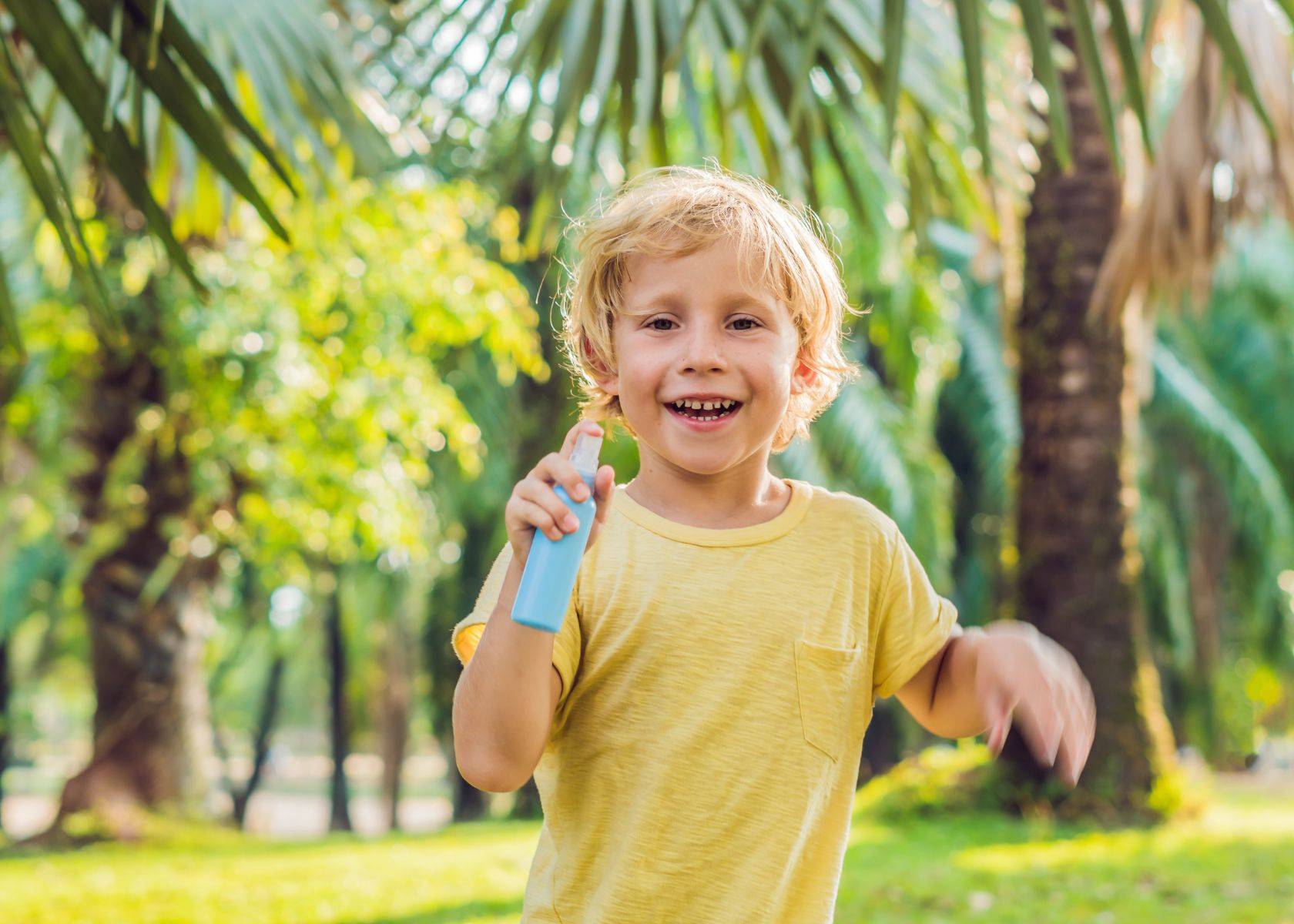
What is baby lotion for mosquitoes?
Baby lotion for mosquitoes is a gentle moisturizer designed to protect babies from mosquito bites. It uses safe and natural ingredients to repel insects without harming the baby's delicate skin.
Can I find organic options for mosquito repellent lotions for my baby?
Yes, there are organic lotions available that keep mosquitoes away from babies using natural ingredients like essential oils. These products are great for parents looking for non-toxic and baby-friendly options.
Are these lotions suitable only for babies or can toddlers use them too?
These insect repellent lotions are formulated not just for babies but also for toddlers and older children. They're made to be gentle enough for infants while effectively defending against mosquitoes.
What are some good baby oil options for insect repulsion?
Johnson's Baby Creamy Oil and Johnson's CottonTouch Lotion are popular choices that offer efficient protection and leave the baby's skin soft.
What are the ingredients used in baby lotion for mosquitoes?
A normal mosquito repellant lotion might contain mineral oil, titanium dioxide, hydrogenated cottonseed oil, seed butter, aloe vera, butter extract, sodium benzoate, potassium sorbate, cetyl alcohol, hydrogenated palm glycerides, Vitamin E, potassium cetyl phosphate, sodium hydroxide, glycerin, tocopheryl acetate. All of these together form a barrier that helps to repel mosquitoes.
Conclusion
Choosing the right baby lotion for protection against mosquitoes is essential. The active ingredients to look for include DEET or Picaridin, while fragrances and dyes should be avoided.
Opting for natural ingredients like citronella, lemon eucalyptus, and lavender can provide effective mosquito-repellent options.
When applying mosquito repellent lotion on babies, it's important to follow specific guidelines to ensure safety and effectiveness. If you have any suggestions for baby lotions for mosquitoes, please share them in the comments section below.
References
- Choi WS, Park BS, Ku SK, Lee SE. Repellent activities of essential oils and monoterpenes against Culex pipiens pallens. J Am Mosq Control Assoc. 2002 Dec;18(4):348-51. PMID: 12542193. https://pubmed.ncbi.nlm.nih.gov/12542193/
- Maia, M.F., Moore, S.J. Plant-based insect repellents: a review of their efficacy, development and testing. Malar J 10 (Suppl 1), S11 (2011). https://malariajournal.biomedcentral.com/articles/10.1186/1475-2875-10-S1-S11#citeas
- Abiy, E., Gebre-Michael, T., Balkew, M. et al. Repellent efficacy of DEET, MyggA, neem (Azedirachta indica) oil and chinaberry (Melia azedarach) oil against Anopheles arabiensis, the principal malaria vector in Ethiopia. Malar J 14, 187 (2015). https://malariajournal.biomedcentral.com/articles/10.1186/s12936-015-0705-4
Learn More About Other Related Topics of Baby Lotions
